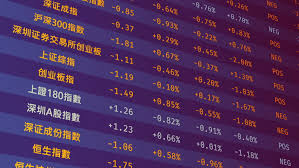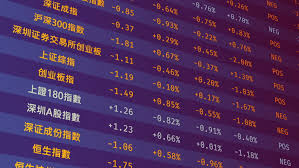
The most bullish trades are coming down in China and the investors there are being remined how fats bets placed by them can change for the worse.
A rout in the currency of the country, one of the favored best of investors, has left them high and dry and has impacted markets globally this week. The currency lost as much as 1.2 per cent during the later part of the week which denoted the largest decline in values of the currency ever since its sudden devaluation way back in 2015. This event was preceded by a wipe out of about $US660 billion ($848 billion) in the value of Chinese equities due to a sudden sell off by investors of large caps and bank stocks.
For some of the investors, the sell off at Wall Street has come as a shock even while others tend to believe that the recent drop is just a temporary phase and the set back of their favorite stocks would be but short-lived.
There was also a fall in the Shanghai Composite on Friday by 5.8 per cent at one time before the market offset some of the losses to trade at a decline of 4.1 per cent.
That slide created a fall in the stock prices of Chinese exchanges – which was in line with U.S. stocks which were in a correctional path, and recorded a decline of over 10 per cent in some stocks.
Liquidity in the market was infused temporarily by the Chinese central bank through an injection of about 2 trillion yuan ($406 billion) on Friday to cater to the potentially enhanced demand during the long Lunar New Year holidays.
A trend, that some trader sin the Chinese market is trying to conceal, is the snowballing of market declines. There is little comfort that can be obtained from government bonds and there is a squeeze in the commodities market. And according Oanda Corp's Stephen Innes, things have been made worse by the anticipated seasonally tighter liquidity before the Lunar New Year holiday.
"They just want to unwind risk and take cash. The slide of Chinese equities in the past few days has definitely had an impact on the currency."
With the Shanghai Composite Index making gains in almost every session in January and the gains for the onshore yuan amounting to more than any other currency in Asia, the beginning of the year for the Chinese markets was quite strong.
But last month, levels of overbought were hit by energy stocks, financial firms and consumer staples of the country according to the gauges tracking those stocks which indicated a sign of overheating on the over all for the market. and in the past three days, those stocks mentioned above are the ones that have been the hardest hit
Even though there have been calls to buy in the dipping market, globally, investors are trying to move away from the risky markets. And the ability of the state-backed funds in China- also known as the “national team”, would be tested in terms of them being able to steady the market in the wake of the sell-off.
The yuan finally gave in after the announcement of the trade surplus data which turned out to be worse-than-expected. The yuan had surprisingly assumed the role of being a safe haven as an asset class this week amidst the downturn in the market. it turned out be the worst performing major currency in the world on Thursday.
"It's a combination of factors including stronger dollar, the nervousness in the equity market and the heavy positioning accumulated earlier that's caused the decline," said Sim Moh Siong, a currency strategist at Bank of Singapore.
(Source:www.smh.com)
A rout in the currency of the country, one of the favored best of investors, has left them high and dry and has impacted markets globally this week. The currency lost as much as 1.2 per cent during the later part of the week which denoted the largest decline in values of the currency ever since its sudden devaluation way back in 2015. This event was preceded by a wipe out of about $US660 billion ($848 billion) in the value of Chinese equities due to a sudden sell off by investors of large caps and bank stocks.
For some of the investors, the sell off at Wall Street has come as a shock even while others tend to believe that the recent drop is just a temporary phase and the set back of their favorite stocks would be but short-lived.
There was also a fall in the Shanghai Composite on Friday by 5.8 per cent at one time before the market offset some of the losses to trade at a decline of 4.1 per cent.
That slide created a fall in the stock prices of Chinese exchanges – which was in line with U.S. stocks which were in a correctional path, and recorded a decline of over 10 per cent in some stocks.
Liquidity in the market was infused temporarily by the Chinese central bank through an injection of about 2 trillion yuan ($406 billion) on Friday to cater to the potentially enhanced demand during the long Lunar New Year holidays.
A trend, that some trader sin the Chinese market is trying to conceal, is the snowballing of market declines. There is little comfort that can be obtained from government bonds and there is a squeeze in the commodities market. And according Oanda Corp's Stephen Innes, things have been made worse by the anticipated seasonally tighter liquidity before the Lunar New Year holiday.
"They just want to unwind risk and take cash. The slide of Chinese equities in the past few days has definitely had an impact on the currency."
With the Shanghai Composite Index making gains in almost every session in January and the gains for the onshore yuan amounting to more than any other currency in Asia, the beginning of the year for the Chinese markets was quite strong.
But last month, levels of overbought were hit by energy stocks, financial firms and consumer staples of the country according to the gauges tracking those stocks which indicated a sign of overheating on the over all for the market. and in the past three days, those stocks mentioned above are the ones that have been the hardest hit
Even though there have been calls to buy in the dipping market, globally, investors are trying to move away from the risky markets. And the ability of the state-backed funds in China- also known as the “national team”, would be tested in terms of them being able to steady the market in the wake of the sell-off.
The yuan finally gave in after the announcement of the trade surplus data which turned out to be worse-than-expected. The yuan had surprisingly assumed the role of being a safe haven as an asset class this week amidst the downturn in the market. it turned out be the worst performing major currency in the world on Thursday.
"It's a combination of factors including stronger dollar, the nervousness in the equity market and the heavy positioning accumulated earlier that's caused the decline," said Sim Moh Siong, a currency strategist at Bank of Singapore.
(Source:www.smh.com)














